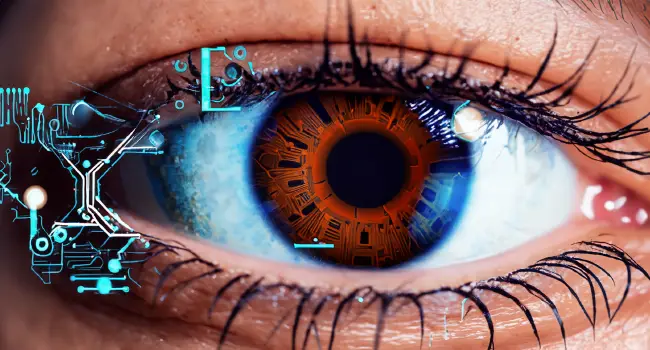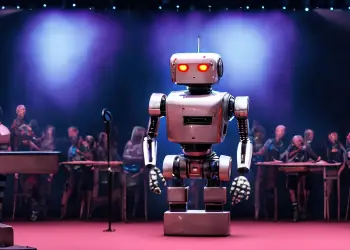Artificial Intelligence

One definition of artificial intelligence is offered by the Association for the Advancement of Artificial Intelligence -- "the scientific understanding of the mechanisms underlying thought and intelligent behavior and their embodiment in machines".
Another definition I found sums up artificial intelligence as: "intelligent behavior in machines".
Artificial intelligence, or AI for short, is a field of computer science that focuses on creating machines and computer programs that can perform tasks that would normally require human intelligence. These tasks include things like understanding natural language, recognizing images, and making decisions.
AI is composed of three parts: the hardware that executes the software, the software or program itself, and the data that the program will process to provide the desired output.
Categories of Artificial Intelligence
Artificial Narrow Intelligence (ANI): Also known as Weak Artificial Intelligence and Specialized AI, this refers to AI systems that are designed to perform specific tasks and do it very well, sometimes better than humans. Most of the AI applications available today are weak AI.
Artificial General Intelligence (AGI): This refers to Strong AI systems in development that are capable of human-like intelligence and can perform any intellectual task that a human can, equally as well, but not better than humans.
Artificial Super Intelligence (ASI): Artificial superintelligence is the advancement of an AI entity to the point where its intelligence passes that of humans in a wide variety of tasks. This type of AI would have a sense of self, write its own programming and use its own reasoning to accomplish goals.
Types of Artificial Intelligence
There are many types of artificial intelligence including:
Reactive machines: These AI systems are the simplest form of artificial intelligence. They analyze real-time data and process it the same way each time. Reactive AI machines do not have the ability to form memories or make decisions based on past experiences. Examples of reactive AI machines are email spam filters and IBM’s chess winner Deep Blue.
Limited memory: Limited memory AI systems are the next step up in artificial intelligence from reactive machines and for practical purposes, the current state of AI. These AI systems can use past experiences to make decisions, but their memory is limited, and they cannot form long-term memories. Examples of limited memory artificial intelligence include chatbots, voice assistants, and self-driving cars.
Theory of mind: These AI systems, currently in development, could understand and reason about human mental states and emotions. Theory of Mind systems would recognize that you are something different than itself, with a mind, thoughts, and needs different than its own. Perceiving a person’s emotions and intent are important aspects of communication between humans and AI.
Self-aware: The highest level of AI, and one that does not publicly exist yet, is a self-aware system, also called artificial super intelligence (ASI). These AI systems would have a sense of self and consciousness. An AI system that is self-aware could be the beginning of The Singularity, a scenario where artificial intelligence surpasses human intelligence, and continues to grow out of human control.
Branches of Artificial Intelligence
Branches (subfields) of AI include machine learning, deep learning and neural networks, natural language processing, generative AI, and computer vision.
Machine Learning: One of the most well-known subfields of AI is called machine learning. Machine learning is a type of AI that allows computers to learn from data, without being programmed to do so. For example, a machine learning program could process images of a wide variety of animals, and then be able to determine if an image has animals in it. Types of machine learning include supervised learning, unsupervised learning, semi-supervised learning, and reinforced learning.
Deep Learning and Neural Networks: Another important area of AI is called deep learning. Deep learning is a type of machine learning that uses neural networks to learn from data. Neural networks are a type of computer program that are inspired by the way the human brain works. They consist of layers of interconnected neurons, which are like tiny processing units that can learn to recognize patterns in data.
Natural Language Processing: Natural Language Processing (NLP) is a branch of AI that processes verbal communication from humans. This has been difficult because people speak in so many different ways. A live translator app on your phone is probably using NLP artificial intelligence to translate your conversations.
Generative AI: Generative AI has been in the news lately with the introduction of the ChatGPT and Dall-E AI algorithms. ChatGPT (Chat Generative Pre-trained Transformer) is a chatbot that can generate code, create music, as well as student essays. Dall-E does the same for images and art. It is easy to imagine how much this will affect society in good and bad ways, as the technology improves.
Computer Vision: A field of AI that deals with how computers can interpret and understand visual information it receives from the world, such as images and videos. Autonomous vehicles scanning the street for pedestrians and X-ray analysis are two examples of computer vision applications.
How is AI Being Used Today?
Narrow AI is used in many different industries. Some examples include robotics, self-driving cars, chatbots, virtual personal assistants like Siri and Alexa, and customer service. It's also being used in new and innovative ways, such as in the development of robots that can work in hazardous environments and in improving financial trading decisions.
AI is also being used to help solve some of the world's most pressing problems. For example, scientists are using AI to analyze satellite images to track deforestation, and to help doctors diagnose and treat diseases like cancer.
Overall, AI is a rapidly growing field with a lot of potential. It has the ability to make our lives easier and to help us solve some of the world's problems. However, it's important to remember that AI is a tool, and like any tool, it can be used for good or for bad. So, it's important to make sure that we use AI responsibly, ethically, and for the good of all.

The Singularity
The technological singularity, often shortened to simply "the singularity," is a hypothetical future event where technological advancement accelerates beyond our ability to comprehend or control it. It's essentially a point of no return, where artificial intelligence surpasses human intelligence and triggers a runaway effect of rapid, transformative change.
Futurists give varying predictions as to the date, cause and likelihood of such an event, ranging from 2045 to 2100.

Chatbots
A chatbot is a computer program that is designed to simulate an intelligent conversation with humans. Many chatbots use machine intelligence, natural language processing (NLP), and large language models to interpret speech or text input prior to providing an appropriate response. Some simply scan for keywords within the input and pull a matching reply from a database. Chatbots can be integrated into messaging apps, websites, and even voice assistants like Amazon's Alexa or Apple's Siri.

Artificial Humor
Artificial intelligence developers are taking satire seriously because humor is an important aspect of improved interaction between humans and computers.
AI Articles and Web Sites
I search the internet daily for new articles from around the world that interest me or I think will interest you. My hope is that it saves you time or helps students with their assignments. Listed by most recent first, dating back to 2005.
-
The list below is maintained by a human. In your face, machine learning! - Jack
-
AI-generated images can exploit how your mind works − here’s why they fool you and how to spot them from The Conversation
-
Will AI improve your life? Here’s what 4,000 researchers think from Nature
-
From chatbots to intelligent toys: How AI is booming in China from BBC
-
This Microsoft AI Studied 7 Years of Video-Game Play. Now It Dreams Up Whole New Game Scenarios. from Singularity Hub
-
DeepSeek is just the start of the artificial intelligence transformation from Clemson News
-
Dr. Winston Ewert: The Limits of Artificial Intelligence from Mind Matters
-
Artificial news: How to create an AI anchor – video from The Guardian
-
Building trust in artificial intelligence from University at Buffalo
-
What Is an AI Agent? A Computer Scientist Explains the Next Wave of AI Tools from Singularity Hub
-
What is an AI Ethicist and How Do I Become One? from Brad Hook
-
The rise of ‘AI agents’: What they are and how to manage the risks from WEF
-
Veo 2 state-of-the-art video generation model from Google
-
Boss Of AI Nick Bostrom On Future Of Artificial Intelligence video
-
Ex-Google CEO warns there's a time to consider unplugging AI systems from Axios
-
How artificial intelligence is changing the game for weather forecasting video
-
Meet an NVIDIA Deep Learning Engineer Helping Shape the Future of AI from NVIDIA
-
Google Project Astra: Our vision for the future of AI assistants video
-
PlayStation co-CEO spits out a bizarre prediction about the future of AI and gaming—one I pray never happens from PC Gamer
-
OpenAI’s GPT-4o Makes AI Clones of Real People With Surprising Ease from Singularity Hub
-
New AI tool generates realistic satellite images of future flooding from MIT News
-
How close are we to an accurate AI fake news detector? from The Conversation
-
The Brains Behind Today’s AI Revolution from UC San Diego Today
-
Are we on the verge of a self-improving AI explosion? from Ars Technica
-
Why deepfakes pose less of a threat than many predict from Psyche
-
Tech bosses think nuclear fusion is the solution to AI’s energy demands – here’s what they’re missing from The Conversation
-
Small Steps, Giant Leaps: Episode 140: Artificial Intelligence from NASA
-
Debate empowers human over artificial intelligence, authors argue from The University of Kansas
-
Replacing hype about artificial intelligence with accurate measurements of success from ScienceDaily
-
AI will never be our friend from University Daily Kansan
-
What is 'model collapse'? An expert explains the rumours about an impending AI doom from ABC Australia
-
Digital Humans: The future of customer service from CBS Austin
-
Artificial intelligence, real anxiety: Why we can't stop worrying and love AI from ZDNet
-
How intelligent is AI? from Aeon
-
This is AI's brain on AI from Axios
-
This Is What Could Happen if AI Content Is Allowed to Take Over the Internet from Singularity Hub
-
OpenAI reportedly nears breakthrough with reasoning AI, reveals progress framework from Ars Technica
-
Research shows AI can boost creativity for some, but at a cost from NPR
-
Unmasking the Fear of AI’s Energy Demand from The Breakthrough Institute
-
Artificial intelligence web crawlers are running amok from NPR
-
AI Evolution: What is a Large Language Model? from St John's University
-
What is artificial general intelligence? from ZDNet
-
Planning for AGI and beyond from OpenAI

